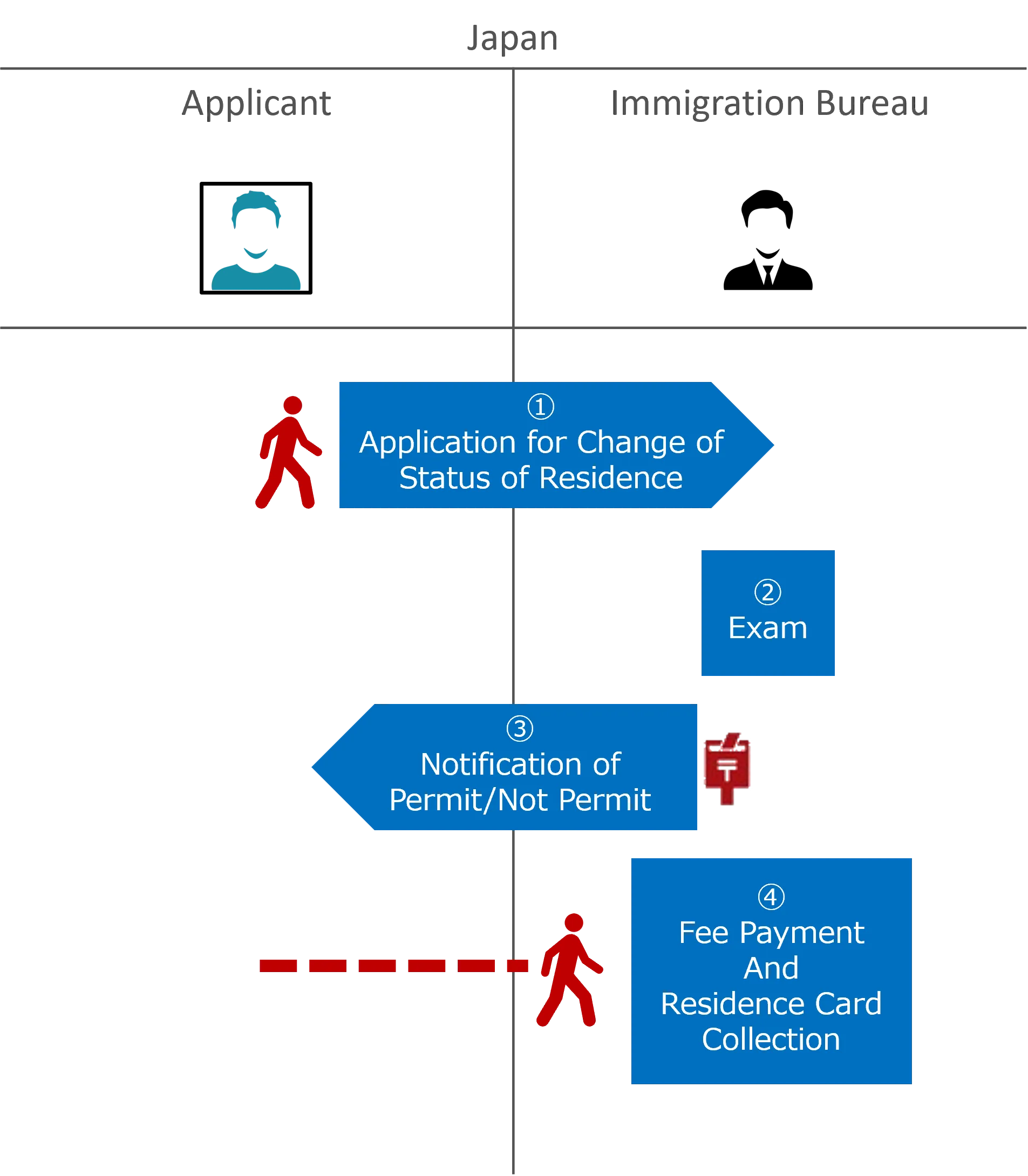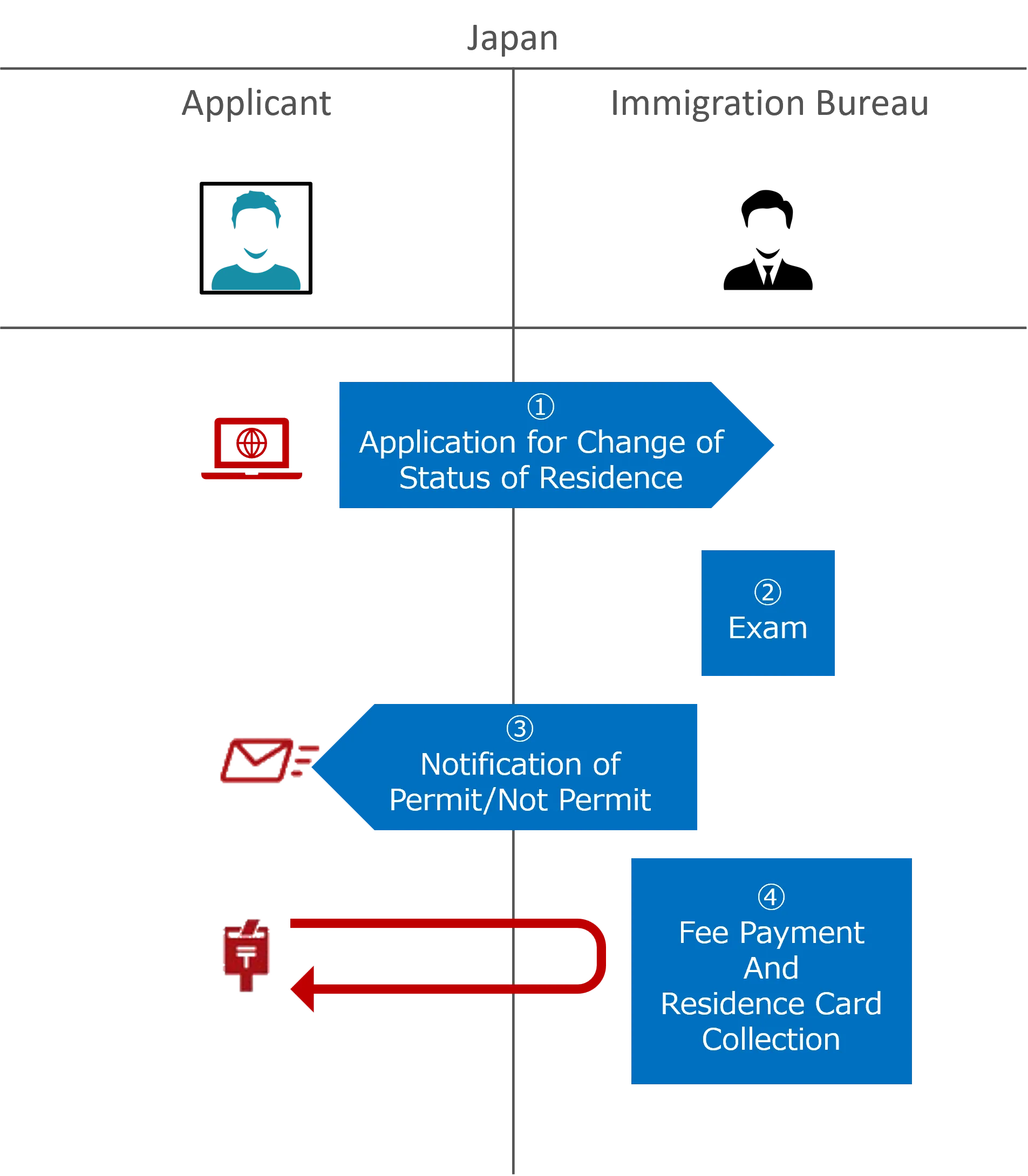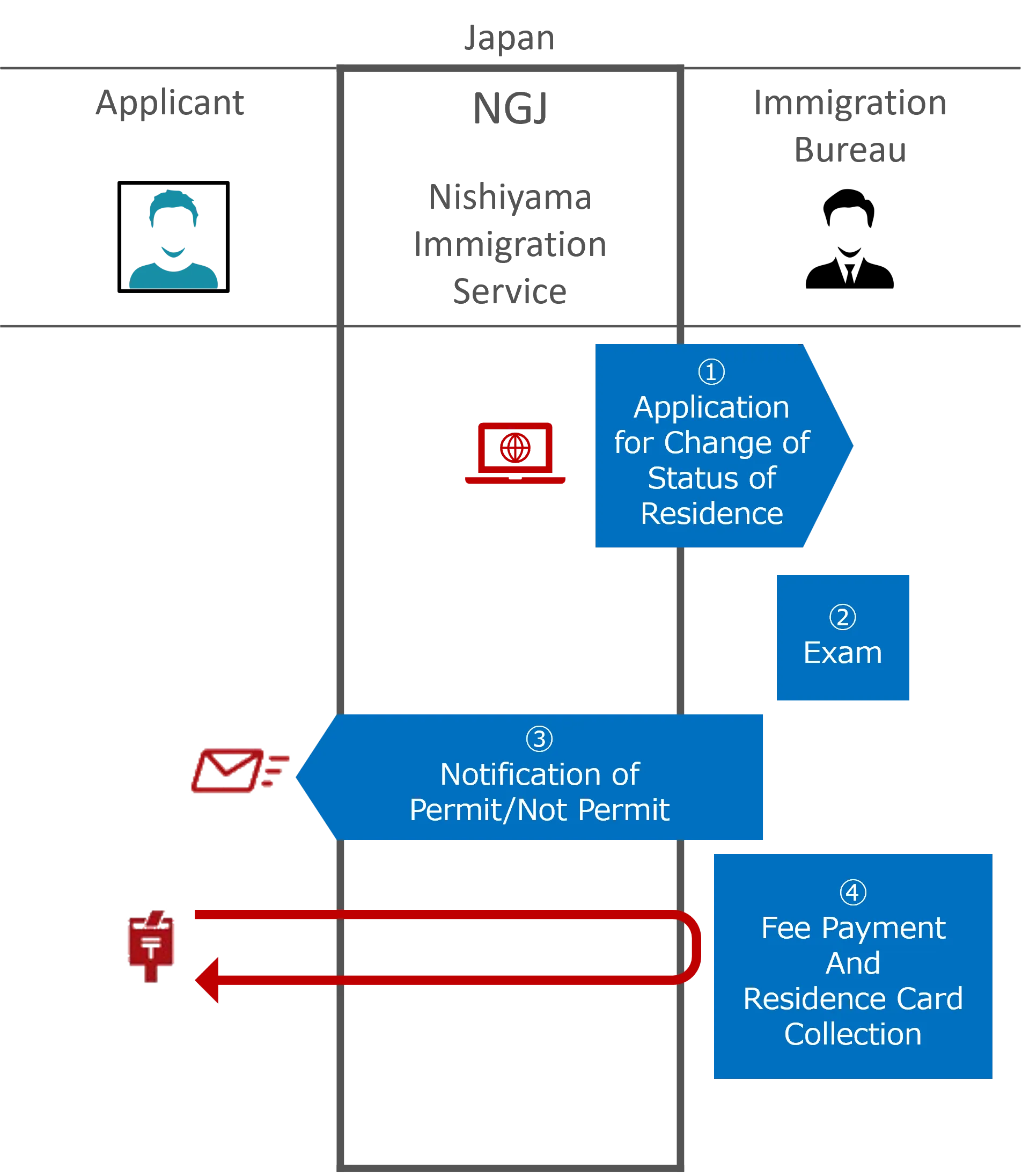Application for permission to change status of residence
Learn how to apply for a Change of Status of Residence in Japan. Requirements, process & tips.
When is the procedure required?
Only one status of residence is always granted to a foreigner.
With an employment or non-employment status of residence, he/she can only engage in activities stipulated by the given status of residence, so he/she must change his/her status of residence at various times, such as when changing jobs or finding employment.
Also, regarding social-position-based residence status, when there is a change in status, for example, if a person with the residence status of "spouse of a Japanese national, etc." divorces a Japanese national, the residence status must also be changed.
From application to permit (conventional procedures)

The procedure for applying for permission to change your status of residence is explained below.
1.Application for permission to change status of residence
The applicant (foreigner himself/herself) submits the application form, photograph, and required documents to the local office of the Immigration Services Agency that has jurisdiction over the applicant's place of residence.
2.Examination
Immigration officers at the Immigration Services Agency examine the submitted application form and attached documents to determine whether the applicant should be allowed to change their status of residence.
The examination usually takes 1 to 3 months.
The viewpoints of examination are very detailed for each status of residence. (See Viewpoints of examination below)
3.Notification of permission/non-permission
As a result of the examination, a notification (postcard) is mailed to the applicant's address.
4.Payment of fees and receipt of residence card
The applicant receives a new residence card by submitting/presenting the notification and the documents listed in the notification (photo, residence card, etc.) and the procedure completes.
At this time, a fee of 4,000 yen need to be paid with revenue stamps.
Viewpoints of examination
Regarding eligibility for residence status
If the applicant seeks for an activity based status of residence, the planned activity must match the activities specified in the desired status of residence. If the applicant seeks for a social- position-based status of residence, there needs to be the fact of this.
For example, under the Immigration Control Act, activities that can be carried out under the employment status of residence "Business Manager" are defined as activities related to business management. If it is determined that the receiving company does not need the personnel for business management, based on its size and management status, there is a high possibility that it will not be granted.
If the residence status is "Spouse of Japanese National, etc.", the same applies if a fraudulent marriage is suspected.
This is the perspective of eligibility for residence status.
Regarding landing permission criteria
In addition to the above, for many statuses of residence, landing permission standards are stipulated by ordinance of the Ministry of Justice. This is from the perspective of immigration policy, for example, if you have a work-related qualification, it is a requirement to set a salary equivalent to that of a Japanese person. The purpose is to prevent people from being deprived of employment opportunities. If the salary in the attached employment contract is extremely low, there is a high possibility that the application will not be issued.
This is the perspective of compliance with landing permission standards.
Behaviors of the applicant
The immigration officer decides whether to approve the application for renewal of residence based on the behaviors of the applicant since landing, like whether the person had previously engaged in activities consistent with their status of residence, whether or not he/she had received any criminal penalties, whether he/she was earning an independent living, whether he/she was fulfilling their tax obligations, whether he/she had met the requirements set forth in the Immigration Control Act and whether fulfilling their notification obligations to Immgiration Bureau.
Online Application

From April 2019, the Immigration Bureau released the online residence application system, making it possible to apply online. (Of course, you can still apply on paper.) The changes and benefits from the previous procedure are as follows.
1.Application for permission to change status of residence
Instead of filling out a paper application form, it is now possible to apply by entering information into the online residence application system. The biggest advantage is that there is no need to go to the local office of the Immigration Services Agency, and the costs of moving and waiting in line are eliminated.
3.Notification of permission/non-permission
Notification of approval or denial is sent to the applicant via email.
4.Payment of fees and receipt of residence card
By following the instructions in the email in step 3, the applicant mails the fee payment slip with revenue stamps for the prescribed fee, a stamped return envelope, his/her residence card to the Immigration Bureau, then a new residence card is returned to him/her.
Our services

Nishiyama Immigration Service applies online to the Immigration Services Agency on behalf of the foreign national.
Applications are made using our unique system that utilizes the residence application online API released by the Immigration Services Agency in July 2020, so instead of inputting information into the residence application online system (via a browser), an Excel-based application template is used. The information you enter will be sent as electronic data.
